What is a VPN, and How does it work?
Table of Contents

You’ve likely heard of VPN if you’ve ever wanted to browse the internet without revealing your identity or location. A virtual private network (VPN) is a tool that encrypts your online traffic. It routes it through a secure server, enabling you to maintain anonymity and privacy online.
In this article, we’ll explore the ins and outs of VPNs, how they work, and why you might want to use one. Whether you’re a seasoned online privacy advocate or a curious beginner, this guide will provide all the information you need to understand VPNs.
VPNs encrypt the data in transit between the two endpoints, providing internet users an extra layer of privacy and security. They are commonly used for remote access, privacy protection, accessing geo-restricted content, and securing public Wi-Fi connections.
Types of VPN
A Virtual Private Network (VPN) establishes a secure and private network connection over the Internet. Different types of VPNs are available, and each serves a different purpose. Thus, we’ll categorize them based on the use case and architecture.
Here’s a summary of the four main VPN types and their characteristics.
Personal VPN
This service connects users to a VPN server, which acts as a middleman between the user and the internet. They are often used by individuals who want to protect their privacy and security online.
Remote access VPN
This type allows users to connect to a private network through the internet anywhere. They are commonly used by employees who need to access company resources outside the office.
Mobile VPN
Mobile VPNs are designed for mobile devices like smartphones and tablets. They allow users to connect to a private network while on the go and require a client application installed on the device. Generally, business travelers who access company resources from remote locations use mobile VPNs.
Site-to-site VPN
Site-to-site VPNs connect two or more networks, allowing users in different locations to access resources on the same network. Businesses with multiple offices or remote locations commonly use site-to-site VPNs.
VPN Protocols
VPN protocols are rules defining how data is encapsulated, encrypted, and transmitted between the user’s device and the server.
Several VPN protocols are available, each with strengths and weaknesses. Here’s a brief overview of some of the main ones.
- OpenVPN – OpenVPN is open-source software known for its security and flexibility. It uses OpenSSL encryption and can be used on various platforms. That includes Windows, Mac, Linux, iOS, and Android.
- PPTP – Point-to-Point Tunneling Protocol is an older VPN protocol some providers still use. It is fast but has known security vulnerabilities.
- L2TP/IPSec – Layer 2 Tunneling Protocol is often used with IPSec to provide encryption. It is less secure than other VPN protocols but is widely supported and easy to set up.
- SSTP – Secure Socket Tunneling Protocol is a proprietary VPN protocol developed by Microsoft. It uses SSL/TLS encryption and is only available on Windows operating systems.
What is the purpose of a VPN?
A VPN is used primarily for the purpose of securing remote access to the internet. VPN services have many applications, and we’ll describe the most important ones below.
Remote access
VPNs allow users to remotely access their workplace network, files, and applications from anywhere. This type benefits employees who work from home, travel frequently, or need to access work resources while on the move.
Privacy and security
VPNs provide internet users an extra layer of privacy and security by encrypting their internet traffic and hiding their IP addresses. This way, it’s more difficult for hackers, cybercriminals, and other third parties to intercept or spy on their internet activity.
Access to geo-restricted content
VPNs enable users to access websites, streaming services, and other online content that may be restricted in their location due to government censorship, copyright laws, or other reasons.
Improved online gaming
A VPN connection can help online gamers too. It reduces latency and improves the gaming experience by connecting to servers in different locations.
Protection against public Wi-Fi risks
A Virtual Private Network protects users who connect to public networks, which are often unprotected. Connecting to a VPN network when using a hotel’s Wi-Fi, for example, prevents hackers from gaining access to your internet data.
Overall, VPNs are a versatile tool that can help individuals and businesses protect their online privacy, security, and freedom.
How does a VPN work?
When you access the internet without a Virtual Private Network (VPN), your data traffic is transmitted in an unencrypted form. This means others can intercept and view any data you send or receive, including your Internet Service Provider.
Without encryption, ISPs can track and monitor your browsing history, passwords, and personal information. They can sell this data to advertisers or use it to target you with personalized ads.
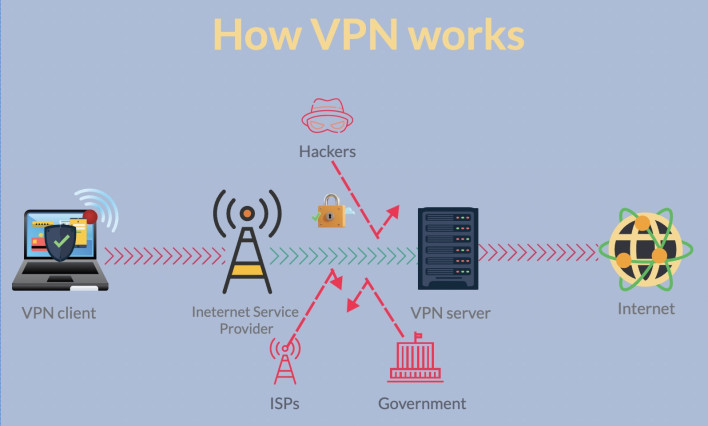
To initiate a connection to a VPN server, you need a VPN client software installed on your device (computer/tablet/smartphone). The VPN client connects to the ISP and then to the VPN server closest to the user. VPNs use a series of protocols or rules to create an encrypted tunnel between your device and the VPN server.
The VPN server receives the encrypted traffic, decrypts it, and then forwards it to its destination (a website, web server, or online service). Then, the destination server receives the traffic, processes it, and sends the response back to the VPN server.
Afterward, the VPN server encrypts the response and sends it back to the user’s device through the encrypted tunnel. Lastly, the VPN client software decrypts the response and displays it on the user’s screen.
Many VPN providers offer extra security features like firewalls and malware protection. They protect you from cyber threats and security breaches.
In short, with no encryption, your online data traffic is vulnerable to third parties, including your ISP. A VPN establishes a secure connection that encrypts your data, protects your privacy, and enhances online security.
VPN processes
VPN processes involve a series of complex steps that work together to ensure the security and privacy of your online activity. These processes are proxying, authentication, tunneling, and encryption.
Read on to learn more about them.
Proxying
This is a process used by VPNs to allow your online traffic to appear as if it is coming from a different location. When you use a VPN proxy, your internet connection is rerouted through a remote server. It masks your true IP address and replaces it with VPN IP addresses.
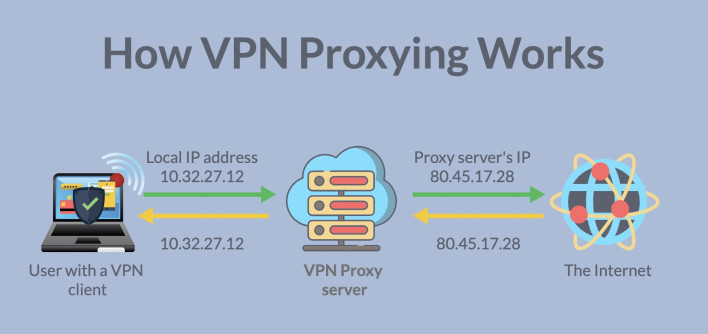
Proxying protects your online privacy by making it harder for others to track your activity and location. It also allows you to access content that may be restricted in your country or region.
Authentication
This process verifies your identity to ensure you are who you claim to be. When you connect to a VPN, the VPN server requires you to enter your login credentials.
The authentication process ensures only authorized users can access the VPN and its services. It also helps prevent unauthorized access to your online activity and data.
Tunneling
VPNs use the tunneling process to create a secure, encrypted connection between your device and the VPN server. This connection is called a VPN tunnel, designed to protect your online activity from prying eyes.
When you use a VPN, all your internet data is routed through this tunnel. This encrypted tunnel keeps others from intercepting or monitoring your online activity. Thus, VPN tunneling is essential when using public Wi-Fi networks, which can be vulnerable to hacking and other security threats.
However, VPN tunneling can sometimes lead to slower internet speeds due to the additional encryption and routing steps. This is where VPN split tunneling comes into play.
VPN Split tunneling
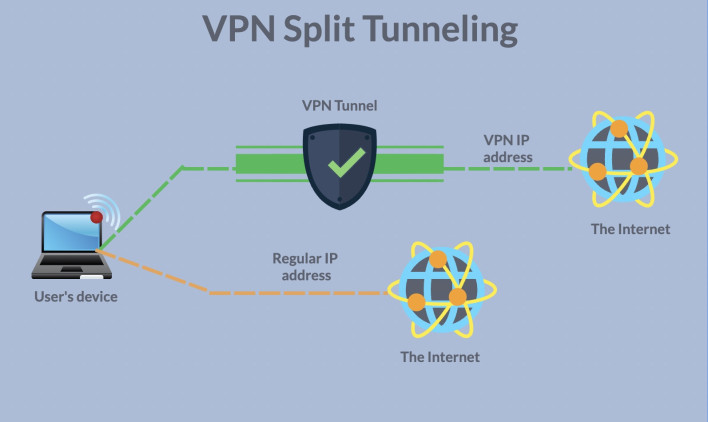
Split tunneling is a software concept that splits your internet connection into two. It lets you connect directly to the internet and use a secure tunnel to encrypt your data simultaneously.
This is done to optimize network performance and reduce the load on the VPN server, as well as to maintain the security of important data. The VPN creates a secure “tunnel” through which the data can travel while leaving other traffic to travel through the regular internet connection.
Split tunneling can save time and hassle, but it also reduces security since third parties may intercept traffic that doesn’t pass through the VPN connection.
Encryption
Encryption is the process of encoding your online data so that it cannot be read or understood by anyone who doesn’t have the encryption key. When using VPN software, your network traffic is encrypted before it is sent through the VPN tunnel to the VPN server.
This encryption protects your online behavior and data from interception or monitoring by others. Without it, your online data would be vulnerable to interception, which could compromise your online identity.
What is the benefit of a VPN?
A Virtual Private Network is a technology allowing you to securely connect to the Internet. There are great advantages to using a VPN, including increased online privacy, security, and freedom.
Security and Privacy
Using a VPN is crucial for protecting your privacy online. With more people working remotely and studying online, we’re all more vulnerable to cyberattacks and scams. A VPN hides the user’s public IP address and “tunnels” traffic between the user’s device and the remote server.
As a VPN user, you can keep your IP address hidden and encrypt your internet traffic. VPN hides your browsing habits and other data, making you less attractive to business entities and minimizing your online footprint.
With a VPN service, your online activities are hidden from prying eyes. This includes your internet service provider, hackers, and government surveillance agencies.
Moreover, VPN software is particularly important if you use public Wi-Fi or live in a country with strict internet censorship laws.
In addition to privacy, a VPN improves your online security by protecting you from cyber threats such as malware, phishing scams, and identity theft. By encrypting your internet traffic, a VPN makes it much harder for hackers to intercept and steal your personal information.
Accessing geo-restricted content
Another perk of a VPN is that it gives you greater freedom and flexibility online. For example, you can use a VPN to bypass geographical restrictions. This way, you can access blocked websites or other resources blocked in your region.
That is particularly useful if you’re traveling abroad and want to watch your favorite TV shows or movies.
Cost savings
Believe it or not, VPNs also bring cost-saving benefits, read on to learn about a few of them.
VPN prevents bandwidth throttling
Some internet service providers (ISPs) throttle or slow down internet speeds for certain websites. Usually, these are streaming videos or downloading large files. By using a VPN, you can bypass these restrictions and enjoy faster internet speeds. This, in turn, can save you money on internet bills.
Shop safely online
When you shop online, your personal and financial information can be vulnerable to theft by hackers. By using a VPN, you can encrypt your online activity and protect your sensitive information from being stolen. This can save you money by preventing identity theft and fraudulent charges on your accounts.
Access to geo-restricted content
A VPN can also help you save money while traveling abroad. By allowing you to access streaming services or online shopping deals that are only available in your home country.
Potential drawbacks of using a VPN
Using a VPN is a popular way to increase online security and privacy. However, it also has some potential drawbacks that users should be aware of. Keep reading to learn more about these shortcomings.
Slow connection speed
A significant disadvantage of using a VPN server is that it can slow down your internet connection speed. This is due to the data having to be encrypted and decrypted, and it has to travel further to reach its destination. Some VPNs can also cause other connection problems, like blocking streaming sites or gaming servers.
Due to slow VPN connection speed, you may experience errors like err_connection_refused, err_connection_timed_out, or “Your connection is not private.”
Risk of unreliable VPN providers
Another possible disadvantage of VPN servers is that they may not protect you from data hoarding on social media websites. VPNs also may not be compatible with all devices or may not work with certain applications or services.
Legal issues
Additionally, some countries like China and UAE have banned VPN usage, making it illegal. Also, several countries have strict internet surveillance and censorship laws. Although they don’t ban VPNs outright, using them to access certain websites may be illegal.
In short, the drawbacks of VPN usage include:
- slower internet speeds,
- connection problems,
- device/service incompatibility,
- no data hoarding protection,
- legal concerns.
However, for many, the benefits of using a VPN for increased security and privacy outweigh these potential drawbacks.
What should I look for when choosing a VPN service?
When choosing a VPN service, one of the first decisions you must make is whether to opt for a free or paid service. While it may seem attractive, keep in mind that there are certain limitations and potential risks associated with using free VPNs.
In fact, free VPNs are slow, unstable, and often crash due to VPN server overload. Paid VPNs offer better security and privacy features, stronger encryption, more reliable connections, and better customer support.
Still, some premium VPN apps offer restricted free plans, which provide many of the same security and privacy features as their paid services. Ultimately, whether you choose a free or paid VPN service will depend on your specific needs and priorities.
Read on to learn what to look for when choosing a VPN service, so you can make an informed decision that meets your needs.
Speed
One of the most important aspects of a VPN is its speed. Thus, look for a VPN provider with high-speed servers located in many different countries for optimal coverage. Keep in mind that server load can also affect speed. A VPN service with more servers in multiple locations guarantees a faster and more stable connection.
Ease of use
The VPN service should be easy to set up and use, even for those who aren’t technically inclined. Thus, a Virtual Private Network that offers a user-friendly interface and clear instructions is preferable.
Customer support
It’s important to choose a VPN provider that offers good customer support. Hence, search for services that offer 24/7 customer support through multiple channels.
Multi-platform support
A good VPN should support multiple platforms like Windows, macOS, iOS, Android, and Linux. This facilitates users to access a remote network securely from different devices.
Security
- VPN Kill Switch: A kill switch is a feature that automatically disconnects your internet if the VPN connection drops. This way, it prevents your online activities from being exposed.
- Ad Blocking: It protects users from malicious ads and tracking while browsing the internet. Some VPN providers offer security features like malware protection and DNS leak prevention.
- VPN Encryption: VPNs use encryption algorithms to protect data in transit. Strong encryption, such as AES-256, is preferred for better security.
Privacy
- VPN Logging – Private network services may log user data, which can eventually be shared with authorities or third parties. The level of logging varies from provider to provider. For instance, many VPN providers have a no-logging policy, meaning they do not keep logs of any kind. Therefore, it is important to select a VPN provider with strong privacy policies.
- Anonymity – A VPN protects anonymity by masking your IP address and encrypting your internet traffic. This means that when you visit websites or purchase products, stream movies, or engage in any web activity, your identity remains completely hidden. The anonymity feature makes it very difficult for anyone to track your online actions back to you.
How to use VPN on different devices?
In today’s digital age, security and privacy are paramount concerns for anyone with internet access. One of the most effective ways to ensure online privacy is by using a Virtual Private Network (VPN).
A VPN encrypts all your internet traffic and hides your IP address. This way, VPN protects your online identity and sensitive information from cybercriminals. Thus, if you want to browse securely, you must set your devices with VPN.
But how do you set VPN on various devices?
In this part, we’ll show you how to set up and use a VPN on a variety of devices. Read on to learn how to set VPN on operating systems like Windows or MacOS. Additionally, we’ll give you the steps to enable VPN on iPhone and Android devices.
By the end of this guide, you will have the knowledge to use a VPN like a pro and safeguard your online privacy. So, let’s dive in!
Use VPN on your computer
After installing the VPN Client of your chosen service provider, you need to enable the VPN connection on your computer. Thus, you can use the VPN app to easily configure a secure connection. Usually, your VPN provider gives you the instructions to configure the network on your device.
Here, we’ll let you know how to connect to a VPN on a Windows or a Mac computer manually, so read on.
Connect to a VPN on Windows
Configuring VPN connections on Windows is pretty straightforward. Follow the steps below to complete the process and secure your internet access.
- To start the process, click on the Windows button and select Settings.
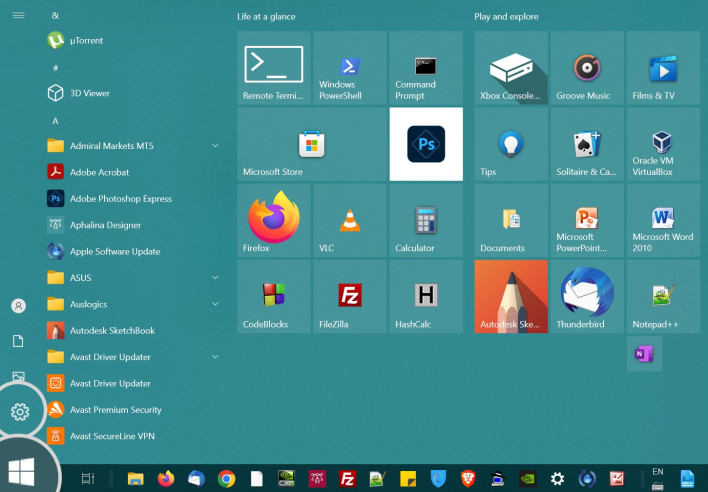
- From the Windows Settings menu, launch the Network & Internet submenu.
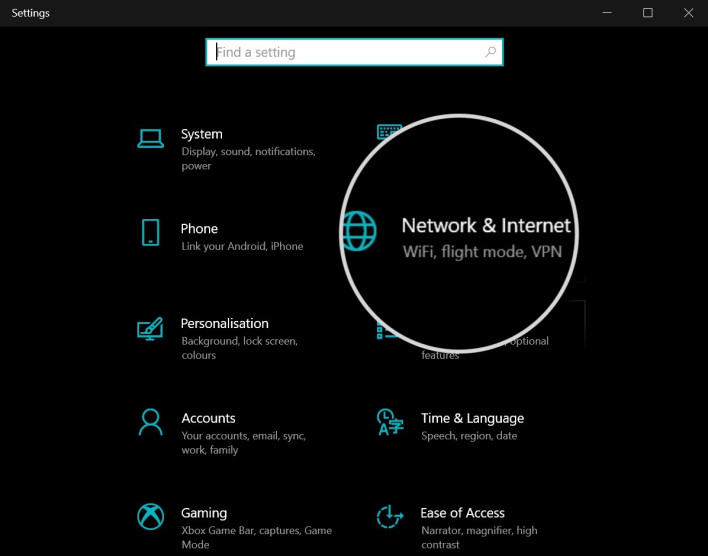
- Select the VPN from the left-side menu and click on “Add a VPN Connection”
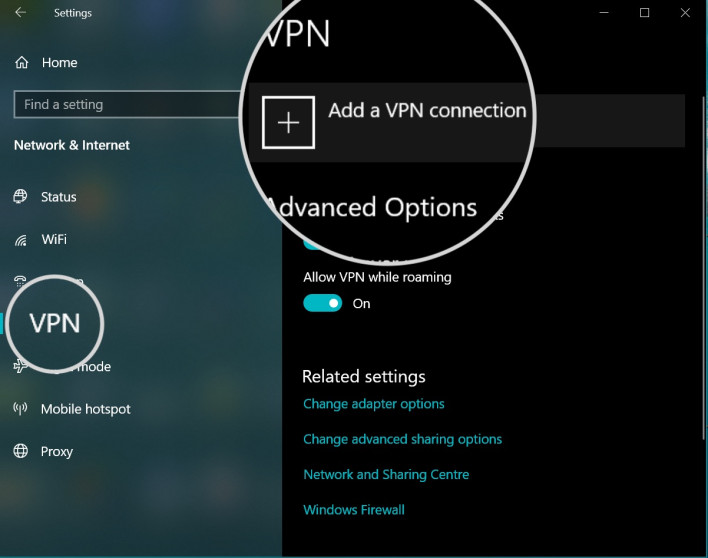
- After the setup wizard launches, choose a custom name for your connection. Then enter your VPN server name, logins, and tunneling protocol.
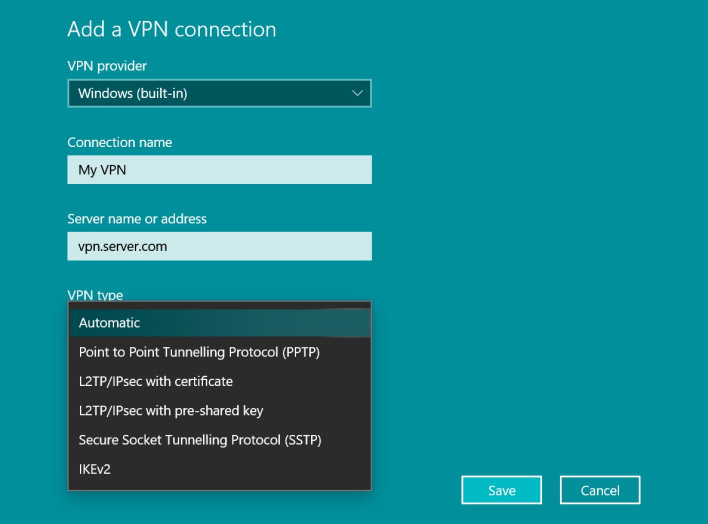
When your VPN server and details are all set, you can find your new VPN connection listed among the available Wi-Fi networks. Click on it, and Windows will direct you to the VPN settings section, where you can select from the available VPN connections.
Configure Mac OS with VPN
To configure a VPN on your MacOS, you’ll need to enter the necessary settings. These include your VPN server address, login details for your service account, and VPN type. Follow the steps below to quickly complete the setup.
- Start by loading the Apple menu and navigate to System Preferences.
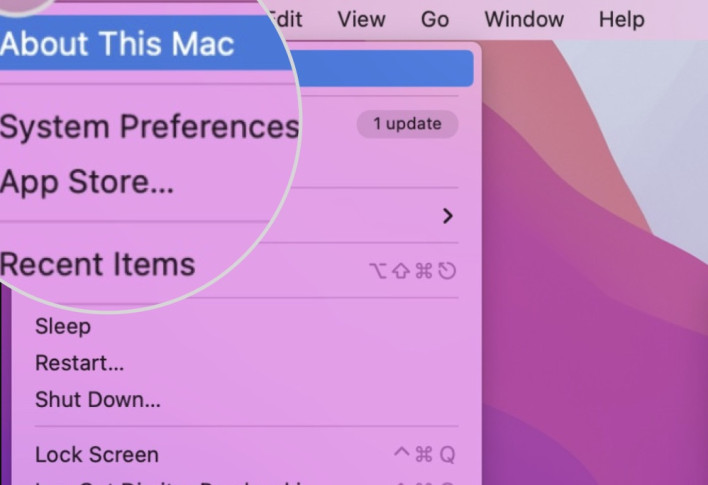
- Alternatively, launch the Settings menu from your Dock. Click on the Network icon to launch the available network settings on your Mac.
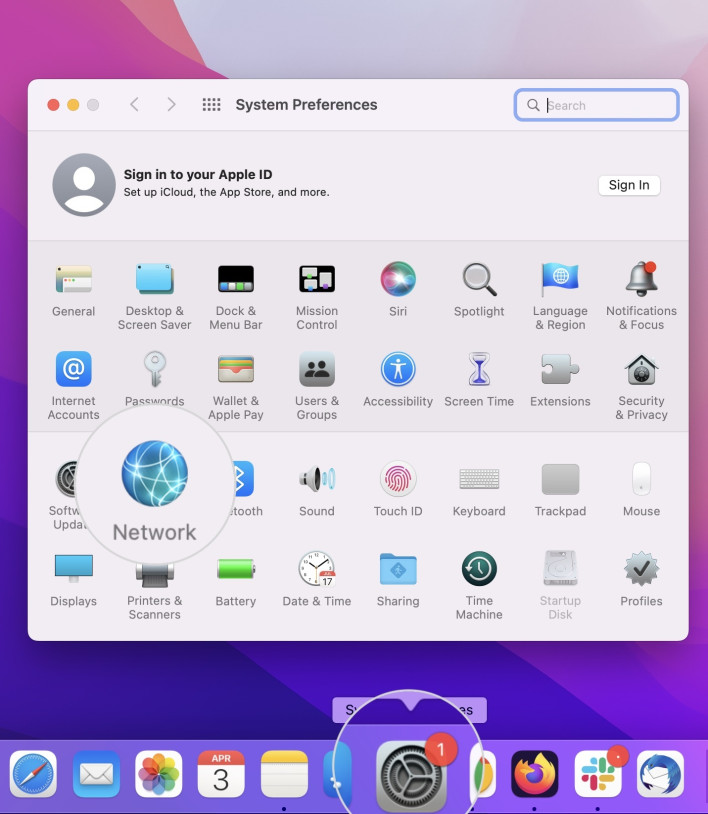
- After launching the Network settings menu, click the “+” sign at the bottom right corner to add your VPN details.
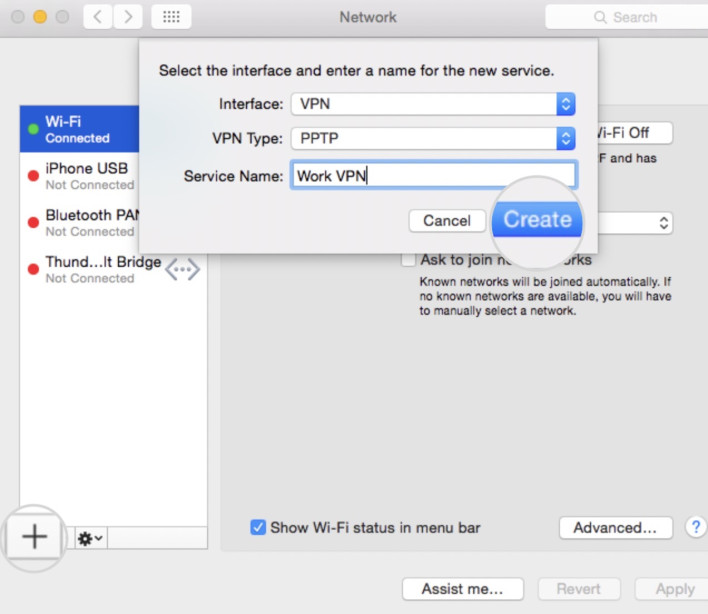
- When ready with entering your details, click Create to set up the VPN connection.
How to use VPN on your mobile devices
If you’re concerned about your online privacy and security, using a VPN on your smartphone can help. With a VPN app, you can encrypt your internet connection, bypass geographic restrictions, and enjoy a private browsing experience.
In this part, we’ll show you how to use VPN on your smartphone, so you can stay safe and anonymous while browsing the web. Whether you’re using an Android or iOS device, setting up a VPN is easy and forthright.
Use VPN on iPhone
Top VPNs, especially premium ones, offer VPN apps for adding other devices to your private network. This is usually included in your subscription. Thus, install the VPN app on your iPhone and authenticate with your subscription credentials. Then the network will show up in the VPN settings menu.
Enable VPN on your iPhone by following the steps below.
- Load your iPhone’s General settings and select VPN.
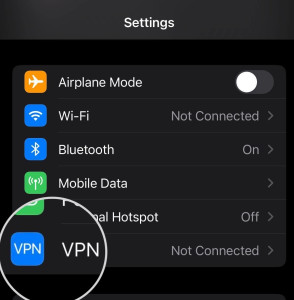
- Select the VPN network you want to use from the list and slide the toggle On to connect.
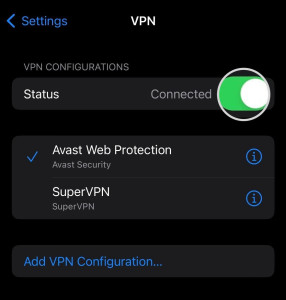
In case you need to add a VPN configuration manually, click on Add VPN Configuration.
- Once the VPN connection is established, you’ll see a VPN sign next to your mobile service provider.
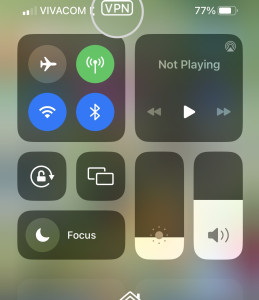
Configure VPN on Android
Same as with iPhones, Android users have to use a VPN application for a private connection or configure VPN settings manually.
- Navigate to your Android device’s Settings > Connections.
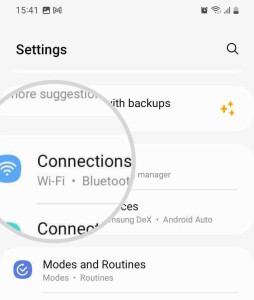
- Then select the More connection settings option.
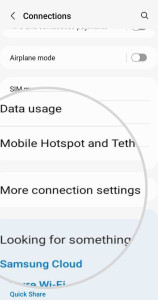
- Click on the VPN option to see the available VPN networks.
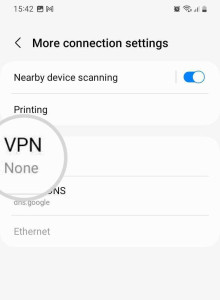
- If you find the VPN app of your service listed there, click on it to enter the necessary settings. Alternatively, click on the kebab menu in the upper right corner and select Add VPN profile.
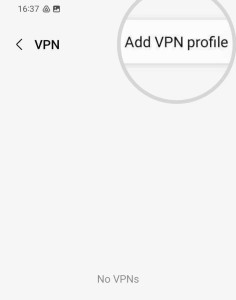
- Enter your VPN settings manually to enable the service on your Android phone.
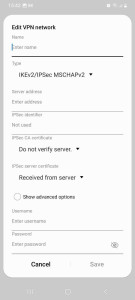
When the VPN is all set and active, you’ll notice a small key icon on the top of your screen.
FAQs About VPN
Is using a VPN legal?
Yes, using a VPN is generally legal in most countries. However, the legality of VPN usage may vary depending on your location and the specific activities you engage in while using the VPN. While VPNs are legitimate tools for enhancing privacy and security, it’s essential to use them responsibly and comply with the laws and regulations of your country.
How can a VPN benefit businesses?
VPNs are not just for individual users; they also play a crucial role in enhancing business security. For businesses, VPNs provide secure remote access for employees, enabling them to connect to the company’s network from any location securely. Moreover, site-to-site VPNs allow different offices or branches to communicate and share resources securely, making collaboration more efficient and seamless. By using VPNs, businesses can protect sensitive data, safeguard their digital assets, and maintain a strong online security posture.
Are There Any Alternatives to VPNs?
Yes, there are alternatives to VPNs that offer varying levels of security and privacy. Some of the popular alternatives include:
Proxy Servers: Proxy servers act as intermediaries between your device and the internet. They can hide your IP address and route your internet traffic through their servers, similar to a VPN. However, unlike VPNs, proxies do not encrypt your data, making them less secure for sensitive activities. They are commonly used for accessing geo-restricted content, but they may not provide the same level of privacy and protection as VPNs.
Tor (The Onion Router): Tor is a network that anonymizes your internet connection by routing your traffic through multiple volunteer-operated servers. It encrypts and re-encrypts data at each step, making it extremely challenging for anyone to trace your online activities back to you. While Tor offers a high level of anonymity, it can be slower than VPNs due to the multiple hops your data goes through.
Remote Desktop Services: For remote access to a specific computer or network, remote desktop services can be an alternative. This allows you to access your office computer from home or another location. While it provides direct access to your work environment, it may not offer the same level of privacy and security as a VPN, as the security measures depend on the computer being accessed.
It’s essential to carefully assess your needs and the level of security required when considering alternatives to VPNs. While some options may offer certain advantages, VPNs remain a popular and reliable choice for overall online privacy and security due to their encryption, data protection, and ability to bypass geo-restrictions.